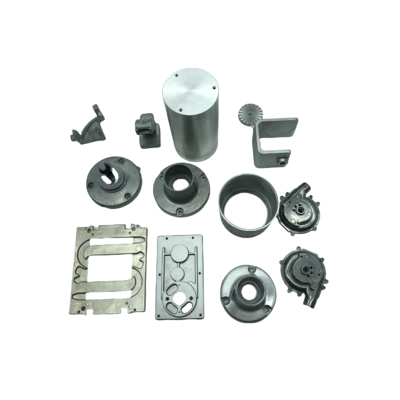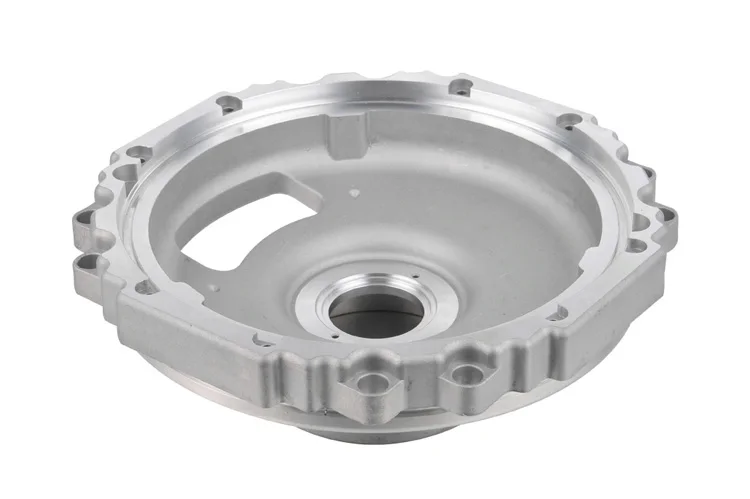The Function of Aluminum Foundries in Progressing Lightweight Production Solutions
Aluminum factories significantly add to the development of lightweight manufacturing remedies. Their cutting-edge spreading technologies yield high-strength, lightweight elements necessary for sectors like auto and aerospace. This advancement not just enhances item efficiency but also advertises sustainability with the use of recycled products. As these foundries adjust to emerging technologies and practices, they lead the way for future growths in producing performance and ecological duty. What exists ahead in this transformative journey?
The Benefits of Lightweight Products in Production
As industries progressively seek efficiency and sustainability, the fostering of lightweight products in manufacturing has actually become a vital technique - Precision aluminum casting. These materials, particularly aluminum and composites, supply various benefits that enhance manufacturing procedures and item efficiency. Largely, their minimized weight adds to reduce power usage during transport and operation, resulting in considerable price financial savings
Additionally, light-weight materials promote the design of even more complicated geometries, enabling greater technology in product growth. This flexibility frequently leads to boosted performance and performance, satisfying the developing demands of contemporary consumers.
In addition, using light-weight materials can boost the long life of products due to their resistance to rust and exhaustion. This longevity not only reduces maintenance prices but additionally supports sustainability initiatives, as longer-lasting items contribute to less waste. To summarize, the benefits of lightweight materials are critical in driving efficiency, development, and environmental obligation in production.
Developments in Aluminum Spreading Technologies
Recent innovations in aluminum casting innovations are revolutionizing the production landscape, especially in the production of light-weight parts. Developments such as high-pressure die spreading and vacuum cleaner die casting have significantly boosted the precision and surface area coating of light weight aluminum components - Aluminum Foundry. These methods allow for the production of intricate geometries while lessening material waste and boosting mechanical residential or commercial properties

In addition, the implementation of real-time tracking systems guarantees quality assurance throughout the spreading process, resulting in even more constant item outcomes. Collectively, these innovations not just enhance the performance of light weight aluminum parts yet also sustain the market's change in the direction of more lasting production methods.
Applications of Aluminum Elements in Different Industries
While aluminum components have actually long been utilized in various industries, their versatility and lightweight residential properties proceed to drive cutting-edge applications across industries such as vehicle, aerospace, and building. In the vehicle sector, light weight aluminum is progressively utilized for engine blocks, wheels, and body panels, enhancing fuel efficiency and efficiency. Aerospace makers take advantage of light weight aluminum for airplane frameworks and parts, taking advantage of its strength-to-weight ratio to enhance gas economic climate and payload capability.
In the building sector, light weight aluminum is preferred for home window structures, roof covering, and architectural components, supplying toughness and resistance to corrosion while minimizing total structure weight. Additionally, the electrical and electronic devices industries benefit from light weight aluminum's conductivity and light-weight nature, utilizing it in circuitry, units, and heat sinks. These diverse applications highlight the crucial function of light weight aluminum elements, which not only satisfy sector needs but additionally contribute to developments in item layout and performance throughout multiple fields.
Sustainability and Energy Efficiency in Aluminum Foundries
The light weight read more aluminum factory sector plays a critical function in promoting sustainability and energy performance, particularly as need for lightweight parts remains to expand across numerous sectors. Shops are significantly adopting environmentally pleasant practices, such as making use of recycled light weight aluminum, which considerably decreases power usage and greenhouse gas emissions compared to key aluminum production.
Additionally, improvements in casting modern technologies boost power efficiency by optimizing the melting procedures and lowering waste. Techniques like die casting and financial investment spreading enable exact product use, lessening excess and scrap.
Additionally, several shops are investing in renewable resource resources to power procedures, better decreasing their carbon impact. Implementing power monitoring systems makes it possible for shops to check and improve power usage, guaranteeing they operate at peak performance.

Future Patterns in Lightweight Manufacturing Solutions
Just how will arising innovations form the future of light-weight production services? Innovations such as innovative products, automation, and additive manufacturing are readied to redefine production processes. The integration of smart production modern technologies, consisting of the Net of Things (IoT) and expert system (AI), will allow real-time surveillance and optimization, improving efficiency and minimizing waste.

As sustainability remains to be a critical worry, lightweight services will significantly concentrate on recycling and recycling products, aligning with circular economy principles. This evolution in lightweight production will not only improve item efficiency but additionally add to ecological objectives, guaranteeing that the market continues to be competitive in a swiftly changing market landscape.
Often Asked Concerns
Exactly How Do Aluminum Foundries Guarantee Quality Control in Manufacturing?
Light weight aluminum factories guarantee high quality control in production view it with extensive screening, standard procedures, and continuous monitoring - Aluminum Casting Company. They carry out sophisticated modern technologies and skilled personnel to keep uniformity, lower problems, and satisfy sector requirements throughout the production process
What Are the Main Challenges Encountered by Aluminum Foundries?
Light weight aluminum factories deal with obstacles such as varying raw product expenses, maintaining production performance, making certain regular quality, adjusting to technological advancements, and conference ecological policies, all of which influence their total functional efficiency and competitiveness in the marketplace.
How Does Aluminum Recycling Influence Foundry Operations?
Light weight aluminum reusing substantially improves factory operations by minimizing raw product costs, minimizing energy usage, and lowering ecological effect. This lasting method allows foundries to improve effectiveness while fulfilling boosting demand for light-weight, high-performance light weight aluminum products.
What Abilities Are Required for Employees in Aluminum Foundries?
Employees in aluminum factories require skills in metallurgy, machining, quality assurance, and safety and security methods. Efficiency in running machinery, comprehending alloy residential properties, and analytical are also crucial for reliable production and maintaining high safety requirements.
Exactly How Do Light Weight Aluminum Foundries Manage Waste Administration?
Aluminum factories handle waste with recycling scrap steel, utilizing efficient waste partition strategies, and adhering to environmental laws. They execute lasting methods to decrease garbage dump contributions, making certain that dangerous products are gotten rid of sensibly.
Light weight aluminum factories considerably contribute to the advancement of light-weight production solutions. Current innovations in light weight aluminum casting innovations are reinventing the manufacturing landscape, specifically in the production of light-weight components. While light weight aluminum elements have actually long been made use of in various sectors, their versatility and light-weight properties proceed to drive innovative applications throughout sectors such as vehicle, aerospace, and construction. In addition, the electrical and electronics markets profit from light weight aluminum's conductivity and light-weight nature, using it in circuitry, units, and warm sinks. The aluminum foundry sector plays a critical function in promoting sustainability and power performance, especially as need for lightweight elements proceeds to grow across various fields.